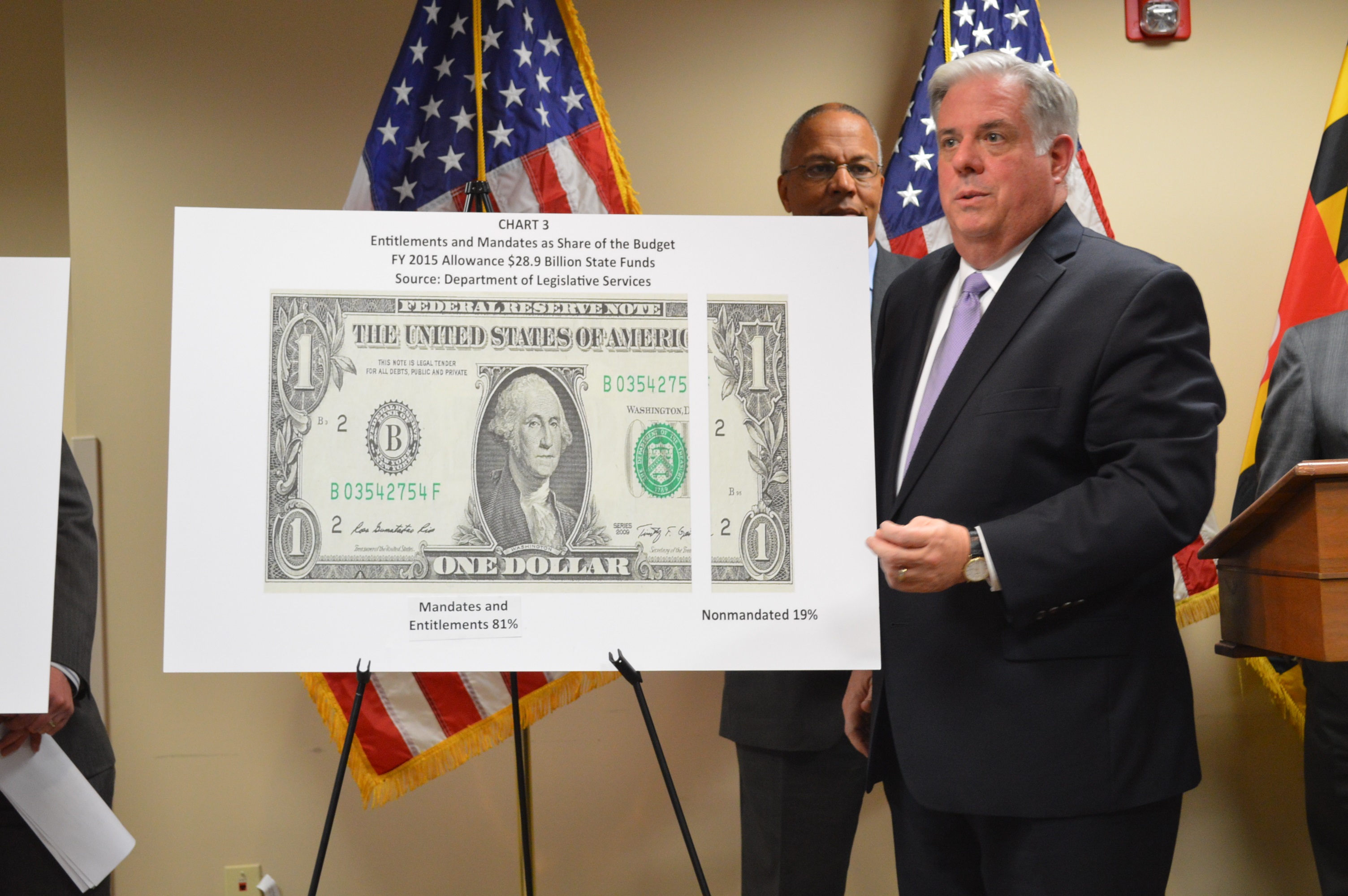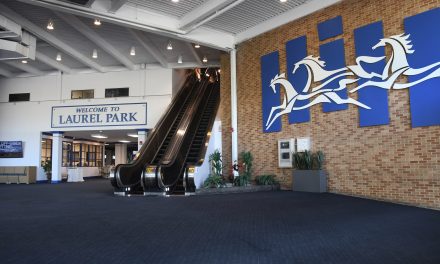By Len Lazarick
Len@MarylandReporter.com
If writing a column about the need to revamp the Open Meetings Act and testifying in support of that proposal before a legislative committee constitutes a good deed, then it just proves again that no good deed goes unpunished.
Following my testimony at a sparsely attended meeting of the Joint Committee on Transparency and Open Government Wednesday, Senate chairman Bill Ferguson asked me to prepare recommendations for changes in the Open Meetings Act.
I told him I would contact other journalists and good government groups to see if we could come up with recommendations. This blog post is my first attempt to reach out for such input.
Input needed
I’d like to tackle this as a journalistic project, using comments, experiences and anecdotes from journalists, citizen watchdogs and others who have attempted to seek enforcement of the Open Meetings Act as the basis for a story about problems with the law. What kind of issues have you faced? What meetings have been closed to you and why? How would you like to see the act improved? Please send me an email with your experiences at Len@MarylandReporter.com.
Unfortunately, Ferguson would like to have the recommendations for changes ready by the committee’s next meeting Dec. 4 – not a lot of time with an election in 19 days.
Wednesday’s hearing was a real snooze. Assistant Attorney General Ann MacNeille, who staffs the Open Meetings Compliance Board, gave an overview of the act – what public bodies are covered and other requirements of the act.
Error in Wednesday’s commentary
Her testimony revealed at least one error in Wednesday’s commentary. I reported that as far as I could tell, the legislature had not complied with a 2010 ruling by the Open Meetings Compliance Board that all the standing committees of the General Assembly were violating the law by not providing minutes of their meetings.
Last year, the House Health and Government Operations Committee amended the very bill that created the Transparency and Open Government committee to say that for any public body that had live and archived video or audio streaming of the open session available, those recordings could be considered minutes of the meeting. Since almost all committee hearings are now recorded by audio in the Senate and video in the newer House building, that would meet the requirement of the law.
One important kind of committee meeting in the House and Senate is not recorded – the voting sessions on bills, which usually include discussion of amendments. The law was changed so it would be considered the minutes of the meeting “if the public body votes and the individual votes taken by each member of the public body who participates in the voting are posted promptly on the internet.”
Faced with an ongoing violation of the Open Meetings Act that had happened for years, the General Assembly changed the law so that what they were actually doing would conform with the law.
J.H. Snider of ISolon.org was the only other person to testify on the Open Meetings Act. He continued his persistent criticism of the lack of Internet access to many kinds of meetings and documents held by Maryland governments. For instance, the Internet posting of committee votes that began in 2010 is not done as an electronic document, but as a scanned PDF of hand-written tally sheets.
This makes it far more difficult to track votes by individual legislators, Snider points out.
Good news for openness
There was one excellent piece of news for open government that came out yesterday. The Joint Hearing Room in the Legislative Services building is being wired for video. This, the oldest, largest and most elaborate of the hearing rooms in the State House complex, is often used for hearings on bills or briefings that attract the largest crowds.






’bout time the Open Meetings Act got overhauled.
It would be nice if there were actual consequences for confirmed Open Meetings Act violations. Right now, not so much, such that if the people involved aren’t embarrassed to be found violating the law, it really has no effect at all.
Be happy to help. My experience has been that the “Transparency Community” in Maryland is fragmented and doesn’t talk / communicate enough. There doesn’t seem to be a critical mass which supports a Google Group type mailing list. I know of a few folks who monitor FOIA-L out of Syracuse.
Perhaps not unsurprisingly, people tend to focus on either the PIA or to a lesser degree the Open Meetings Act (each one is essentially a fulltime hobby – I don’t know of anyone in the state who works a 40-hour week concentrating only on one or the other).
I have had the opportunity to help/critique open meetings complaints for a few people who are outside my immediate area and I’m always happy to try. I routinely drop notes to writers when I see Open Meetings topics on websites, though to hear back is rare. They’ve found me through various Google searches, I guess, or maybe my very occasional blog.
I also offered to come and give the journalist-eye’s-view to MACO attendees, but was told their setup, where the seminar presented by lawyers is used for their “continuing education” academy, does not accommodate something like that. That’s a shame, and pretty darned shortsighted in my opinion.
Yet these are the same people who are quick to cry out that open meetings complaints “waste taxpayer money” because they elect to pay an attorney to answer the complaint(s). Please note that there is no requirement in the law for attorneys to be involved in the complaint process; and assorted attorneys have come up with some real doozies in their responses over time. I just wish I could bill for some of the same type of wild concepts.
The length of service of the attorneys or members of the public body has no correlation with the ability to comply with the law. That points to totally inadequate training. And frankly, if penalties are somehow made more likely and more, well, punitive, the length of time the public officials or others have been exposed to the law’s requirements should factor in. For example, a mayor who’s been in office 20 years has, quite literally, no excuse for ever finding a complaint on his or her desk about the Mayor and Council.
Under the rubric of “legal advice” public bodies are allowed to talk in closed session with their attorneys about Open Meetings complaints and opinions. This serves no good purpose, and I can document at least one occasion where the “legal advice” exception was abused to discuss a parliamentary ploy to avoid any action in open session on an open meetings question.
Anyway, the real question is a structured approach to this hydra-headed monster.
You can find about 100 sunlight organizations nearby, and they all focus on the federal government. As far as I can determine, there is simply nothing in Maryland which acts as an open meetings clearinghouse. MD-FOG is still on the books somewhere but it’s moribund. The press association has dropped its support of open meetings training for journalists, as far as I can tell, and the ability to ask the MDDC for an atty’s take on something has been gone for several years — if not in theory, certainly in practice.
The efforts to make legislative workings more transparent doesn’t seem to have a deep connection with the Open Meetings Act itself.
As far as the Open Meetings Act, also, it covers such a broad area that each subdivision presents its own set of challenges. An incomplete list — there are probably 6,000 public bodies in this state and most get no scrutiny.
I am most concerned about the newly-trendy “P3s” – public-private-partnerships, where as we say with the MDTA, the RFP and vetting process is almost 100 percent in secret because the OpenMeetings Act is not explicit about them; and once the P3 has been set up, it would take a court case to pry the clamshell open.
But there are:
State agencies, as in pieces of the executive branch.
State “Commissions.”
The Legislature.
State “Authorities.” — Like the MDTA or the NMWDA
State quasi-public “Corporations” — Like the BDC or the Maryland Broadband Coop.
Local governments (councils, commissioners)
Local “Authorities”
Local Zoning bodies.
Local Property Tax Assessment Appeals Boards.
Cities and towns.
Meeting notice gets a lot of attention, but in my experience, is not the most significant problem. Ongoing substantive violations which result in witholding required information are more common. All other things being equal, if a public body has a videotape of a meeting, or keeps extensive and accurate minutes, then the notice problem(s) are mitigated somewhat.
But a body that’s conscientious (if rote) about notice, yet does a lousy job with the other records, does real damage to thempublic’s rights under the law. For example, it’s not uncommon to take months, or even a year, to approve minutes. Why? This is not a difficult concept or a difficult process.
In my opinion, the most effective place to start is to make sure that minutes *and closing statements* are placed on a website in a searchable electronic format by all public bodies.
So we seem to be starting from scratch again. Maybe that’s not a bad thing. But it appears we need a nonprofit advocacy/think-tank framework, no matter how small it may start off.
Expanded upon at MDT&A — http://www.md-ta.blogspot.com
The law may allow audio-only recording to substitute for prepared minutes, but this is flawed. As I have discovered listening to legislative hearings, a listener can hardly tell who is speaking if all they have to go on is the sound of the speaker’s voice. This is particularly challenging when speakers are referred to only by their jurisdiction, not by name. To be useful, an audio recording needs to be accompanied by a written list of the names of the speakers, at a minimum. Otherwise the recordings only serve insiders who know the players well.